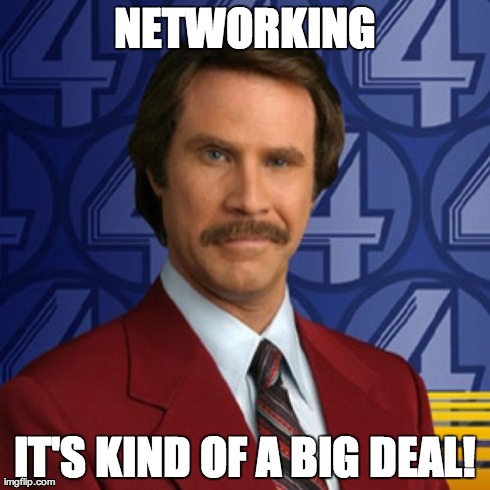Networking involves sharing knowledge and contacts, helping others, and building relationships. Networking is NOT bluntly asking those you know to give you a job! This is an important distinction because many people make the mistake of thinking that networking is a way for others to do the work for you when really networking is simply a tool to help make your life easier through reciprocation - helping others and getting help in return.
In order to utilize the people in your network for job search help or career preparation information, you firstly need to identify who your network is. Is it composed of coworkers, managers, teachers, or maybe even your neighbors? Your network can come from anywhere and can encompass a wide variety of people with different areas of expertise. Most people only begin to reach out to this network when they are in need of career help, but it is crucial to maintain these relationships even when you have found the job of your dreams, as you never know when you will be in need of help, especially in today's unpredictable job market.
Secondly, perspective matters! A good way to view your network is like writing a resume; it is a continuous process which requires updating, attention, and individual effort in order to thrive. By viewing it as an ongoing process, you will always be in the loop with those in your network, and because of this, they will be happy to help you when you are in need. If you ignore those in your network until you need something, they may not be as eager to give you a hand.
Finally, be sure to effectively utilize online platforms for networking. This is especially useful for contacts from past jobs or those people in your network who have moved away or whom you don't see often. Platforms like LinkedIn, Twitter, and Facebook can all be used to stay connected with your network and are extremely effective in regards to expanding the network you currently have. One important note is not to randomly network; always have a strategy or a reason for why you are reaching out to someone, in order to utilize these online platforms appropriately and effectively during career development and job hunting.
As the old saying goes, it's not always what you know, but who you know! Using these simple tips, you will be on your way to developing and utilizing your network as effectively as possible to enhance the caliber of job opportunities that come your way and to help with career development. Happy Networking everybody!
Scarlet Stark, 3rd Year Psychology Major, Career Assistant







